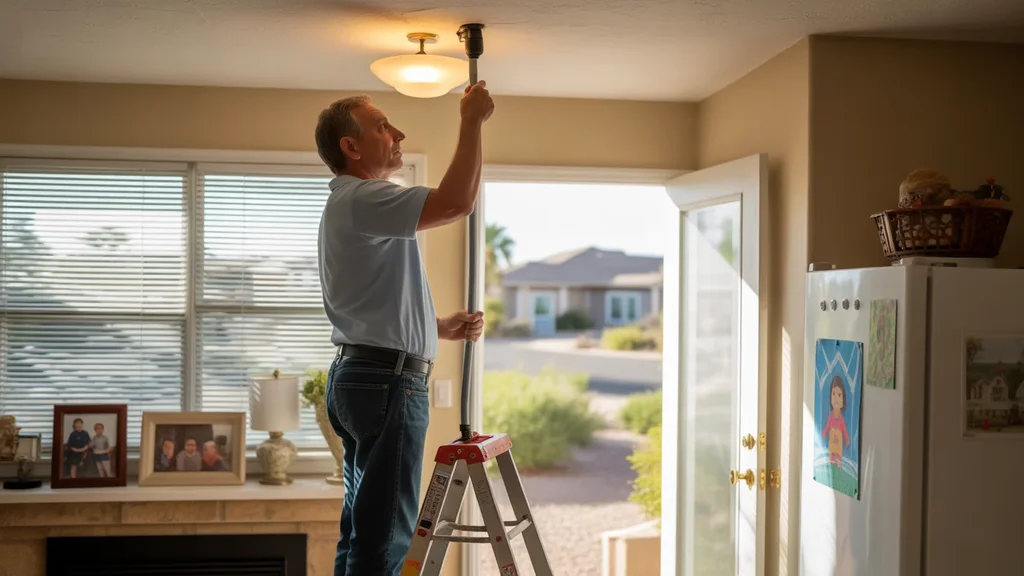The Housing Market in Maricopa Today

Maricopa, Arizona, is experiencing a dynamic housing market in 2025. The city has seen steady growth in recent years, with new housing developments rising in the downtown area and surrounding neighborhoods. Despite this growth, inventory has tightened, leading to increased competition among buyers and renters alike.
The local economy has remained strong, with job opportunities in healthcare, education, and retail sectors attracting new residents to the area. This influx of residents has put pressure on the housing market, driving up prices and making affordability a concern for many.
Renting in Maricopa: What’s Typical?
For those looking to rent in Maricopa, the average monthly rent for a one-bedroom apartment is around $1,200, while a two-bedroom apartment typically costs about $1,500. These figures represent a slight increase from the previous year, reflecting the growing demand for rental properties in the city.
Rent trends vary depending on the location and amenities offered. Newer apartment complexes in Maricopa often include trash and internet services in the monthly rent, which can help offset some utility costs. Popular renter areas include the city center, where young professionals and couples appreciate the proximity to dining, shopping, and entertainment options.
Owning a Home in Maricopa
The median home price in Maricopa currently stands at $350,000, with the estimated monthly mortgage for a typical buyer hovering around $1,800. This assumes a 30-year fixed-rate mortgage with a 20% down payment and an interest rate of 4.5%.
In addition to the mortgage, homeowners in Maricopa must also consider other costs such as property taxes, homeowners insurance, and HOA dues. Property taxes in the city average about 0.7% of the home’s assessed value, while insurance premiums can vary depending on the property’s age, location, and coverage level. Many neighborhoods in Maricopa have active HOAs, with monthly dues ranging from $50 to $200.
Renters vs. Homeowners: Who Lives Where?
Maricopa’s homeownership rate currently stands at around 65%, slightly higher than the national average. This means that nearly two-thirds of the city’s residents own their homes, while the remaining third are renters.
Young professionals and couples often opt for renting, as it allows for greater flexibility and lower upfront costs. Families, on the other hand, tend to gravitate towards homeownership, seeking the stability and space that a single-family home provides. Retirees in Maricopa are split between renting and owning, depending on their financial situation and lifestyle preferences.
Despite the benefits of homeownership, financial and cultural barriers can make it difficult for some residents to achieve this goal. Saving for a down payment, qualifying for a mortgage, and navigating the complex home-buying process can be challenging, particularly for first-time buyers.
Typical Monthly Housing Costs in Maricopa
Here’s what housing costs might look like each month in Maricopa:
| Expense | Renter | Homeowner |
|---|---|---|
| Rent/Mortgage | $1,500 | $1,800 |
| Property Tax | – | $200 |
| Utilities | $150 | $250 |
| Insurance | $20 | $100 |
| HOA | – | $100 |
| Total | $1,670 | $2,450 |
Estimates reflect mid-range properties and average usage.
What’s Driving Costs Up or Down?
Several factors influence housing costs in Maricopa, with supply and demand playing a significant role. As more people move to the area, the increased demand for housing puts upward pressure on prices. The local job market also impacts housing costs, as a strong economy with ample employment opportunities attracts new residents, further driving demand.
Zoning regulations and new developments can also affect housing costs. If zoning laws restrict the construction of high-density housing, such as apartments or townhomes, it can limit the supply of affordable housing options. Conversely, if the city encourages the development of mixed-use projects or transit-oriented communities, it may help to alleviate some of the pressure on housing prices.
FAQs About Housing in Maricopa
- Is Maricopa affordable to live in? Compared to some larger cities in Arizona, Maricopa offers relatively affordable housing options. However, affordability ultimately depends on an individual’s income, lifestyle, and housing preferences.
- Why are housing prices changing? Housing prices in Maricopa are influenced by various factors, including population growth, economic conditions, and the balance between supply and demand.
- How does Maricopa compare to nearby cities? Maricopa’s housing costs are generally lower than those in larger cities like Phoenix or Scottsdale, but may be higher than some smaller surrounding towns.
Making Smart Housing Decisions in Maricopa
When considering housing options in Maricopa, it’s essential to weigh the costs and benefits of renting versus owning. Renters should budget for monthly rent, utilities, and renter’s insurance, while homeowners must account for their mortgage, property taxes, insurance, and maintenance costs. In Maricopa, many homes use swamp coolers, which can help reduce air conditioning bills during the hot summer months.
To make informed decisions, residents should consider their long-term goals, financial stability, and lifestyle preferences. Exploring resources like monthly budget examples for Maricopa residents and comprehensive cost of living guides can help individuals and families navigate the local housing market with confidence.
